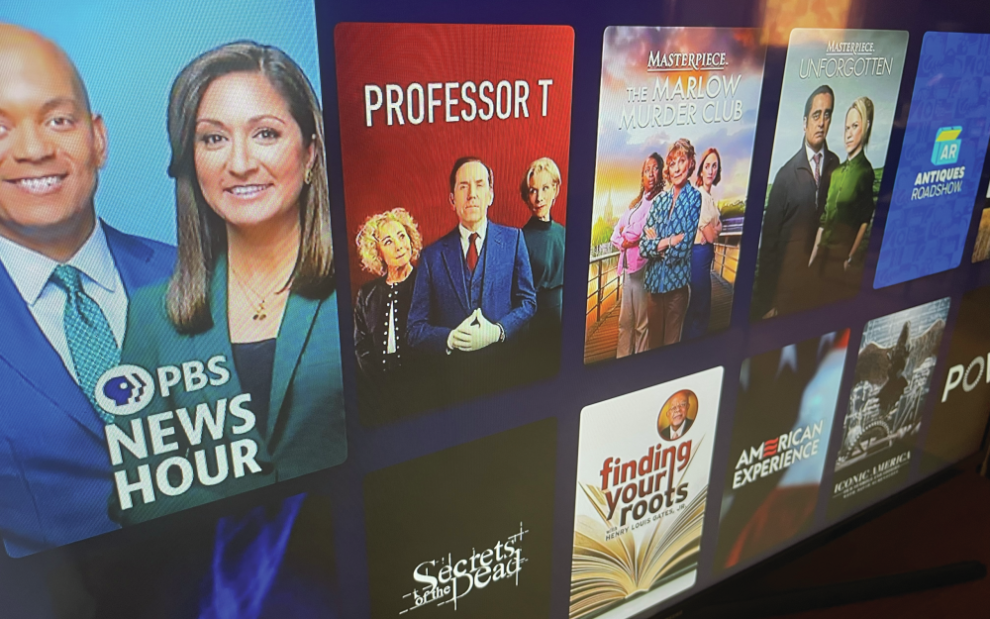I’ve always been a big fan of what economists call the public sector. I could dress up that enthusiasm with fancy language about “solidarity” and the “common good.” But the cold, hard fact is that big government has been very, very good to me and my family. For example, we bought our first house with a U.S. Department of Agriculture loan for homebuyers in rural areas. For several years, the Children’s Health Insurance Program (CHIP) was often the only thing keeping our financial nose above water, and we benefited from the last year of the fully refundable Adoption Tax Credit.
I guess Mitt Romney would have said we’re “takers,” not “makers.” But I don’t just love big government for its money. Our family never had cable TV (or satellite, its rural equivalent). So, for us, TV was what came through the rooftop antenna. During my family’s child-rearing years, except for a few sporting events, that meant TV was PBS. First, Mister Rogers, Reading Rainbow, and Kratt’s Creatures; then, when the kids could stay up later, Nature and maybe even a Film Classic on the weekend.
For 25 years, PBS was one of our only allies in the war we waged to defend our children against commercial culture. It was a place where quality would be more important than profit, where nothing would be for sale, and where our attempts to instill virtue in our children would be supported (especially by Mister Rogers) or at least not overtly contradicted. And the pattern continues. For my wife and me today, as newly minted empty nesters, TV means Friday nights with PBS News Hour and Washington Week.
So I took it especially hard when, this July, Congress pulled back the funding it had previously approved for the Corporation for Public Broadcasting (CPB). It was even harder to take because the final vote came just three weeks after the death of the journalist Bill Moyers, whose work embodied the highest aspirations of public broadcasting. (For a posthumous glimpse at Moyers’ work, check out Two American Families: 1991–2024, streaming at pbs.org.)
As an aide to President Lyndon Johnson, Moyers was also in on the 1967 founding of the CPB. From the start, public broadcasting sought to provide an alternative to the commercial marketplace. At the signing ceremony for the CPB bill, President Johnson said his action that day “announces to the world that our nation wants more than just material wealth; our nation wants more than a ‘chicken in every pot.’ . . . [W]e want most of all to enrich [humanity’s] spirit.”
But our government is no longer in the business of enriching spirits and hasn’t been for a while. The seeds of public broadcasting’s downfall were there from the beginning, because congressional funding had to be reapproved in each federal budget. When the CPB was created, our long post-World War II economic boom was still going strong. We could easily afford to spend millions giving ordinary Americans access to constructive children’s programming, first-rate drama, and even Julia Child’s French cooking show.
However, the boom petered out in the mid-1970s. In 1981, Ronald Reagan aimed to shrink the power and reach of government, and one of his first targets was public broadcasting. He made the straightforward libertarian argument that no one should have to pay for someone else’s entertainment. If you want to watch Masterpiece Theatre or have your kids watch Mister Rogers instead of Tom and Jerry, fine, but you should pay for it yourself.
Reagan and his Republican successors were never able to completely eliminate public broadcasting, for the same reason that the Libertarian Party never wins elections: The most essential premise defies not just our common humanity but our common sense. However, Reagan and his Republican successors did succeed in cutting CPB funding to the bone. In subsequent decades, government money for public broadcasting was largely replaced by donor money. And that made public media especially vulnerable to the current era’s weird mash-up of libertarianism and cultural populism.
When the only funded programming is the sort that appeals to charitable foundations and wealthy individuals, public broadcasting enters a death spiral of elitism and Anglophilia. When the average American looks at the PBS schedule, filled as it is with content leased from the British Broadcasting Company (like the entire Sunday night lineup of Masterpiece), science and nature programs, and documentaries exploring various niche interests (such as recent ones on international grocery stores or a portrait of a Black rural activist in Colombia), they could easily wonder: What does any of this have to do with me?
But it didn’t have to end this way. Have you ever wondered why PBS has always depended on the BBC for a large share of its programming? It’s because, from the start, the British adopted an entirely different model for funding public media. In the UK, a licensing fee is assessed on every television set. This amounts to about $235 USD annually per set, or $20 per month. That’s way less than anyone’s cable and/or internet fee in the United States—and in exchange, the Brits get access to 400 TV channels (British and foreign) and a streaming service, the BBC iPlayer. This dependable revenue stream from the license fee has allowed the BBC to produce much more original programming than PBS ever could, maintain news bureaus all over the world, and take more of a something-for-everyone approach to cultural content.
That might be a better way forward if or when the day comes when Americans start missing their old friend, the government.
This article also appears in the November 2025 issue of U.S. Catholic (Vol. 90, No. 10, page 36-37). Click here to subscribe to the magazine.
Image: Megan Avery















Add comment